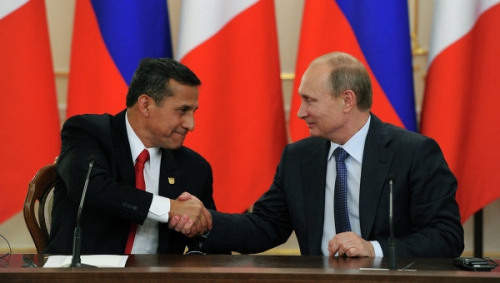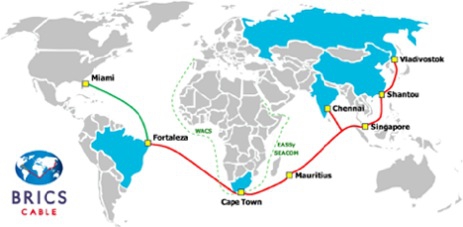|
Por Manuel Fernández Espinosa
Ex: http://movimientoraigambren.blogspot.com
El presente texto, con el mismo título, encontró su primera publicación en la Revista Arbil, nº 107. Algunos años han pasado desde su publicación, sin embargo el autor lo presenta en RAIGAMBRE tal y como fue publicado. Un tema tan extenso siempre puede ser objeto de análisis más profundos y amplio: daría para un libro. Sin embargo, de lo que aquí está dicho el autor lo único que considera prescindible es la que hoy considera excesiva atención a las ideas rocambolescas de Valle-Inclán, muy parecidas -por cierto- a lo que algunos arbitristas de nuestra tradición sostenían. Y juzga que faltaría un ahondamiento en Yanguas Messía, de cuyo pensamiento muy poco se sabe.
Antecedentes geopolíticos en España: Ángel Ganivet,
Yanguas Messía y Valle-Inclán
|
||
|
El sueco Rudolf Kjellen (1864-1922) acuñó el término "geopolítica", pero esta ciencia había sido llamada con anterioridad "geografía política" y sus desarrollos más rigurosos se debieron principalmente a las especulaciones del inglés sir Halford McKinder (1861-1947). El término se importó posteriormente a la Europa continental merced a los oficios del profesor alemán Karl Haushofer (1869-1946) y el nazismo, por último, desacreditaría la geopolítica al adoptar Adolf Hitler los conceptos imperialistas de Haushofer. Hitler que trató de hacer realidad las líneas que teóricamente había trazado Haushofer. El nacionalsocialismo integraría los sueños que el viejo general y profesor alemán había abrigado sobre la fundación de un Reich de mil años que ampliaría sus fronteras sobre un territorio vastísimo a costa de los territorios del Este de Europa. El tan implacable como hadario expansionismo que la Alemania hitleriana ejecutó hacia el Este haría saltar Europa por los aires en una segunda conflagración mundial que supuso, como Hitler predijo, la fragmentación del talasocrático Imperio británico.
No sólo el Imperio de Su Graciosa Majestad sucumbiría. Después del tan cacareado triunfo de las democracias, vino el reflujo de las antiguas colonias sobre las otrora metrópolis. Después de retirarse de la política, el General Charles De Gaulle se instaló en un pequeño pueblecito francés que en español pudiéramos llamar Colombey-Las-Dos-Iglesias. Francia estaba experimentando ya por aquellos años un alarmante crecimiento de la inmigración musulmana que llevó a decir al gran estadista galo: "No es inimaginable que Colombey-las-Dos-Iglesias se transforme en Colombey-las-Dos-Mezquitas". El filósofo rumano afincado en París, E. M. Cioran, parafrasearía esta cita de De Gaulle, expresando en una entrevista a Fernando Savater uno de sus negros augurios: "Mire, -le dijo Cioran a Savater- la realidad es que Francia, por ejemplo, se siente invadida. Hace tiempo me atreví a hacer una profecía: dije que dentro de cincuenta años la catedral de Notre-Dame sería una mezquita." Siempre que leo esta cita de Cioran, resuena en mí el eco de un poema de Gerard de Nerval: "Notre-Dame est bien vieille; on la verra peut-être/Enterre cependant Paris qu'elle a vu naître;" [Notre-Dame es muy vetusta: tal vez se la verá/Sepultar el París que ella ha visto nacer". Pero no es sólo la capital gala, la romana Lutecia, la que está amenazada.
El desenlace de la II Guerra Mundial granjeó a la geopolítica una pésima fama debido al más arriba referido intento hitleriano de realizar las teorías de Haushofer, pero la Geopolítica puede aspirar a convertirse en una ciencia tanto más urgente en cuanto que estamos asistiendo a unos movimientos migratorios que están poniendo en tela de juicio las identidades de las naciones históricas, desdibujando la fisionomía de nuestra Patria y sus pueblos, así como el resto de naciones europeas.
Aunque Haushofer popularizó el término "geopolítica" no cabe duda que fue McKinder el "padre de la geopolítica", convirtiéndose su modelo básico en punto de partida para todas las demás especulaciones que a partir de él se hicieron en este campo. Su acierto fue saber delimitar y comprender determinadas leyes objetivas de la historia política, geográfica y económica de la humanidad.
Según nuestro contemporáneo, el geopolítico ruso Alexander Dugin: "La esencia de la doctrina geopolítica podría reducirse a los siguientes principios. Dentro de la historia planetaria existen dos visiones enfrentadas y competidoras sobre la colonización de la superficie de la Tierra: el enfoque "terrestre" y el enfoque "marítimo". La elección de uno de ellos depende de la orientación ("terrestre" o "marítima") que siguen unos u otros estados, pueblos o naciones. Su conciencia histórica, su política interior o exterior, su psicología, su visión del mundo se forman siguiendo unas reglas determinadas. Teniendo en cuenta dicha particularidad, se puede hablar perfectamente de una visión del mundo "terrestre", "continental" o incluso "esteparia" (la "estepa" es "tierra" en su estado puro ideal) y de una visión del mundo "marítima", "insular", "oceánica" o "acuática". Señalemos de paso que los primeros indicios de semejante enfoque los encontramos en las obras de los eslavófilos rusos Jomiakov y Kireévski."
Antecedentes geopolíticos en España.
Haciendo por ahora caso omiso a los avatares históricos de la "geopolítica" en el sentido más riguroso y estricto, podríamos empezar diciendo que la geopolítica es, y debe ser, ante todo un conocimiento propio. (No en balde el "Conócete a tí mismo" es el principio de todo conocimiento.)
España tuvo sus propios conatos geopolíticos avant la lettré, algunos de los cuales, los más destacados, vamos a considerar: el primer bosquejo geopolítico podemos decir que fue trazado por Isabel la Católica en su testamento, custodiado por el Cardenal Cisneros de feliz memoria. Concluida para bien nuestra reconquista había que saltar el estrecho de Gibraltar y anular la amenaza afroislámica, pero en el ínterim se descubrió un mundo y los españoles nos lanzamos sobre él. Poco después el veterano soldado y poeta Francisco de Aldana (muerto en 1578) advirtió nuevamente la amenaza africana, trazando en octavas reales sus negros presagios. El poeta y soldado de Felipe II, el bravo español de Extremadura que cayó en la batalla de Alcazarquivir desapareciendo con el Rey Don Sebastián de Portugal, escribió antes de su partida estas octavas reales a Felipe II:
"Mas quiero proponer que no suceda
(así lo quiera Dios) esto que digo;
harto trabajo de pasar nos queda
en que a nosotros baje el enemigo.
Para poder llegar ¿quién se lo veda?,
pues África le da seguro abrigo,
adonde trabarán, por mar y tierra,
con tus puertas de allá temprana guerra.
Entonces la morisma que está dentro
de nuestra España temo que a la clara
ha de salir con belicoso encuentro,
haciendo junta y pública algazara,
y al mismo punto el aquitáneo centro
volver, de Francia, la enemiga cara,
bajando el Pirineo, aunque no sea
a más que a divertir nuestra pelea."
En "El Criticón", Baltasar Gracián nos ofrece algunos pasajes muy significativos sobre el carácter de los pueblos y la influencia que los paisajes ejercen sobre el natural de los hombres que los pueblan. "-¿No te parece [España] muy seca, y que de ahí les viene a los españoles aquella su sequedad de condición y melancólica gravedad?". "-¿No te parace que [España] es muy montuosa y aun por eso poco fértil?". "-Está muy despoblada". "-Está aislada entre ambos mares". Y si está "muy apartada del comercio de las demás...", a Gracián le parece que "Aun había de estarlo más, pues todos la buscan y la chupan lo mejor que tiene". Según Gracián, los españoles "tienen tales virtudes como si no tuviesen vicios, y tienen tales vicios como si no tuviesen tan relevantes virtudes".
El perfil del español nos lo traza así: Los españoles somos bizarros, "pero de ahí les nace el ser altivos. Son muy juiciosos, no tan ingeniosos; son valientes, pero tardos; son leones, mas con cuartanas; muy generosos, y aun perdidos; parcos en el comer y sobrios en el beber, pero superfluos en el vestir; abrazan todos los estranjeros, pero no estiman los propios; no son muy crecidos de cuerpo, pero de grande ánimo; son poco apasionados por su patria, y trasplantados son mejores; son muy allegados a la razón, pero arrimados a su dictamen; no son muy devotos, pero tenaces de su religión. Y absolutamente es la primer nación de Europa: odiada, porque envidiada".
En fin, para Gracián, "hay genio común en las naciones". Y cuando sus personajes, Andrenio y Critilo, cruzan el Pirineo para adentrarse en Francia: "Admiraron con observación aquellas gigantes murallas con que la atenta naturaleza afectó dividir estas dos primeras provincias de la Europa, a España de la Francia, fortificando la una contra la otra con murallas de rigores, dejándolas tan distantes en lo político cuando tan confinantes en lo material".
Estos primeros ensayos se verán transformados a finales del siglo XIX en teorías geopolíticas sobre España, en lo interior tanto como en lo exterior, un poco más sólidas.
Ángel Ganivet y la apología de los crustáceos.
 Nacido en Granada el 13 de noviembre de 1865, hijo de Francisco Ganivet Morcillo y Ángeles García de Lara y Siles, a la muerte de su padre en 1875 Ángel Ganivet tuvo que abandonar los estudios, para trabajar como escribiente en una notaría, pero 1880 su jefe le animó a reanudar su educación en el Instituto. En 1885 sacó su Bachillerato con matrícula de honor en todas las asignaturas. En el Instituto de Granada se interesa por las obras de Lope de Vega y empieza a leer a Séneca. Se licencia en Filosofía y Letras en la Universidad de Granada en 1888 y, dos años más tarde, termina la carrera de Derecho. Nacido en Granada el 13 de noviembre de 1865, hijo de Francisco Ganivet Morcillo y Ángeles García de Lara y Siles, a la muerte de su padre en 1875 Ángel Ganivet tuvo que abandonar los estudios, para trabajar como escribiente en una notaría, pero 1880 su jefe le animó a reanudar su educación en el Instituto. En 1885 sacó su Bachillerato con matrícula de honor en todas las asignaturas. En el Instituto de Granada se interesa por las obras de Lope de Vega y empieza a leer a Séneca. Se licencia en Filosofía y Letras en la Universidad de Granada en 1888 y, dos años más tarde, termina la carrera de Derecho. Pasa a Madrid para cursar el doctorado en Letras y se presenta a las oposiciones al Cuerpo de Archiveros y Bibliotecarios que ganó, siendo destinado a la Biblioteca del Ministerio de Fomento. Su tesis "Importancia de la lengua sánscrita y servicios que su estudio ha prestado a la ciencia del lenguaje en general y a la gramática comparada en particular" obtuvo el premio extraordinario del doctorado, después de haber sido rechazada por Nicolás Salmerón su primera tesis "España filosófica contemporánea".
Frecuentó el Ateneo y, aburrido de su profesión como archivero, intentó hacerse con la cátedra de Griego en la Universidad de Granada. Y conoció a Miguel de Unamuno. En junio de 1892 fue nombrado vicecónsul en Amberes. Residió en Amberes hasta finales de 1895 hasta que se le destinó a Helsingfors (actual Helsinki). Desde Finlandia escribe sus "Cartas finlandesas" (1897) que remite a la "Cofradía del Avellano", grupo intelectual que había sido fundado en Granada. Las cartas de Ganivet se publicaron en "El Defensor de Granada".
En Bélgica había conocido la civilización industrial que le pareció repugnante, como el capitalismo moderno que con ella emergía, por lo que adoptó actitudes antidemocráticas que le llevaron al rechazo del socialismo, el liberalismo, la industrialización, el mercantilismo y la técnica. En Bélgica también se preocupa del colonialismo europeo en África, que le lleva a escribir entre 1893 y 1895 la novela "La conquista del reino de Maya, por el último conquistador español Pío Cid".
Ganivet se traslada en agosto de 1898 a Riga gravemente enfermo, y el 29 de noviembre de 1898 se suicida, arrojándose al río Dwina.
En su "Idearium español" Ganivet se aparta del expansionismo, marginándose del contexto de la época cuando las naciones europeas se habían lanzado frenéticas a la conquista imperialista y colonización del mundo que terminaría confrontándolas trágicamente en la Gran Guerra.
La tesis de Ganivet se cifra en "Noli foras ire, in interiore Hispaniae habita veritas" (No vayas fuera, en el interior de España habita la verdad).
Podríamos aventurar que esta idea fuerza ganivetiana puede ser no otra cosa que la versión laica de la misma idea del integrismo nocedaliano que se expresó en aquella frase que se hizo famosa: "Ya que no podemos encerrar dentro de sí misma a España para que se salve del universal cataclismo, encerrémonos nosotros dentro de nosotros mismos, no para rechazar a nadie, pero para no transigir con ideas, soluciones, con nada que sea contrario, ni siquiera sospechoso, a nuestros principios, cada vez más intransigentes, es decir, cada vez más firmes en nuestros principios" (Ramón Nocedal y Romea, "Discurso en el Palacio de Ciencias de Barcelona", 20 de noviembre de 1892). No se ha indicado la significativa coincidencia que en algunos puntos muestra el pensamiento ganivetiano con el integrismo nocedaliano.
Ganivet es tanto o más elocuente que Nocedal, y cuando lanza su tesis no cree que sea valedera tan sólo para un grupo de personas partidarias de una concepción determianda del mundo, sino que la ofrece con el convencimiento de que esa idea de "interiorizarse" y "enclaustrarse" es válida para toda una nación, la española: "Hay que cerrar con cerrojos, llaves y candados todas las puertas por donde el espíritu español se escapó de España para derramarse por los cuatro puntos del horizonte...". Para él la solución consiste en "la concentración de todas nuestras energías dentro de nuestro territorio".
Para Ganivet, España es "por esencia, porque así lo exige el espíritu de su territorio, un pueblo guerrero, no un pueblo militar". No son expresiones sinónimas; el "espíritu militar" (que no es el español) está en la sociedad y es un esfuerzo de organización, mientras que el "espíritu guerrero" (el genuinamente español) está en el individuo y "es un esfuerzo contra la organización".
El "espíritu territorial" es concebido por Ganivet como algo constante que por las condiciones geográficas determina el carácter del pueblo que tiene su solar y asiento en ese territorio, "lo exige el espíritu de su territorio". Hay pueblos continentales (Francia), pueblos insulares (Inglaterra o Japón) y pueblos peninsulares (España). En los pueblos continentales lo característico es la resistencia, en los peninsulares la independencia, y en los insulares la agresión.
"España -dice Ganivet- es una península, o con más rigor, "la península", porque no hay península que se acerque más a ser isla que la nuestra. Los Pirineos son un istmo y una muralla; no impiden las invasiones, pero nos aíslan y nos permiten conservar nuestro carácter independiente... somos una "casa con dos puertas", y, por lo tanto, "mala de guardar", y como nuestro partido constante fue dejarlas abiertas, por temor de que las fuerzas dedicadas a vigilarlas se volviesen contra nosotros mismos, nuestro país se convirtió en una especie de parque internacional, donde todos los pueblos y razas han venido a distraerse cuando les ha parecido oportuno; nuestra historia es una serie inacabable de invasiones y de expulsiones, una guerra permanente de independencia".
La posición geográfica de España la hace fácilmente expugnable. Según Ganivet, "la tendencia natural de Castilla era la prosecución en el suelo africano de la lucha contra el poder musulmán, del que entonces podían temerse aún reacciones ofensivas". La fatalidad quiso que nos encontráramos un continente, el que descubrió sin saberlo Cristóbal Colón, esos territorios del Nuevo Mundo atrajeron "las fuerzas que debieron ir contra África". En ese sentido, Oswald Spengler pensaba que la conquista de América por españoles y portugueses dejó exhausta a la pensínsula, pues "un torrente de hombres, con sangre nórdica, se vierte hacia América". No hay que olvidar que en la consideración de Spengler obran prejuicios racistas que no podemos consentir. Estamos lejos de pensar que lo que quedó en la península, tras la población de América, fue una masa humana que había perdurado a través de celtas, romanos y sarracenos de peor estofa que la que marchó.
Para seguir con Ganivet, diremos que el granadino sostenía que el "espíritu territorial" de España es el que ha modelado al español como un "pueblo guerrero" y no como un "pueblo militar", lo hemos dicho más arriba. Los españoles siempre hemos estado prestos a unirnos para dar combate al invasor pero de un modo más espontáneo que organizado. Tanto en la lucha por nuestra independencia desde Numancia hasta el 2 de mayo de 1808, como en las conquistas americanas el pueblo español ha mostrado ser un pueblo de guerreros y guerrilleros que secundan con devota fidelidad ibérica a Viriato y al Cid Campeador. "Para nuestras empresas en América no fue necesario cambiar nada, y los conquistadores, en cuanto hombres de armas, fueron legítimos guerrilleros, lo mismo los más bajos que los más altos, sin exceptuar a Hernán Cortés". El pueblo español no se organiza, es "un pueblo que lucha sin organización". Remedando a Ernst Jünger, podríamos decir que el anarquismo echó raíces en España por la íntima constitución del hombre ibérico que, antes que anarquista podríamos decir que es un anarca a la manera jungueriana.
Esa falta de capacidad organizativa constituye un punto débil, y a su vez un punto fuerte. Pero el punto más fuerte es nuestro autoconocimiento: "El peninsular conoce asismismo cuál es el punto débil de su territorio, porque por él ha visto entrar siempre a los invasores; pero como su espíritu de resistencia y previsión no ha podido tomar cuerpo por falta de relaciones constantes con otras razas, se deja invadir fácilmente, lucha en su propia casa por su independencia, y si es vencido se amalgama con sus vencedores con mayor facilidad que los continentales".
Don José De Yanguas Messía.
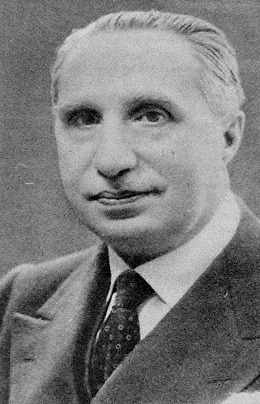 Nacido en Linares, descendiente de Rui Díaz de Yanguas, caballero calatravo portaestandarte en la Batalla de las Navas de Tolosa, D. José de Yanguas Messía era hijo del jurisconsulto D. José de Yanguas Jiménez y de Doña Luisa Gómez Vizcaíno. Nacido en Linares, descendiente de Rui Díaz de Yanguas, caballero calatravo portaestandarte en la Batalla de las Navas de Tolosa, D. José de Yanguas Messía era hijo del jurisconsulto D. José de Yanguas Jiménez y de Doña Luisa Gómez Vizcaíno. El 6 de abril de 1918 la "Gaceta de Madrid" publicaba el nombramiento de D. José de Yanguas Messía como catedrático de Derecho Internacional en la Universidad de Valladolid. Cursó el Bachillerato en el Instituto de Baeza y estudió en la Real Universidad libre del Escorial. Una vez licenciado y doctorado, fue pensionado por la Junta para ampliar estudios en Francia y Bélgica, investigando la política colonial europea, pasando por las aulas de la Sorbona y bajo el magisterio de Pillet y Weiss. La Gran Guerra interrumpió sus estudios y regresó a España, aquí redactó su "Expansión en África" y "El Estatuto Internacional en Marruecos", interesantes trabajos a los que no hemos podido acceder sino por noticias indirectas de uno de sus más eminentes discípulos, el tosiriano D. Miguel Arjona Colomo (1913-1975) que nos dejó escrito un libro cuyo título es "Personalidad humana y científica de José de Yanguas Messía". Cualquiera que quisiera adentrarse en el mundo de la geopolítica española de principios del siglo XX tendría que acudir a la obra de Yanguas Messía.
Geopolítica de Valle-Inclán.
Más accesibles son los libros de Ramón María del Valle-Inclán. Comúnmente se le considera no más que carlista estético, pero allá por 1909 sostenía, en la más ortodoxa línea foralista, que los nacionalismos periféricos no constituían un serio problema para la unidad de España, si ésta los asumía secundando la riquísima y secular tradición foralista. ¡Felices tiempos en los que podía decirse que los nacionalismos periféricos no eran un problema para España y decirlo sin hacer el ridículo más calamitoso! El dramaturgo gallego creía que el único nacionalismo salvador sería el que estuviera informado por la tradición, entendida como los carlistas la entendían. Sosteniendo semejantes tesis tendríamos que revisar la versión político-correcta que de Valle-Inclán se nos hace, sospechando que, después de dedicar al carlismo su trilogía "Las guerras carlistas" y pensar en comunión con él, no sólo sea un carlista estético, por más estrafalario que nos parezca.
 Pero, claro es, de Valle-Inclán uno no puede fiarse. Conocidas son sus inclinaciones por el esoterismo y su pertenencia militante en la perniciosa secta de la Sociedad Teosófica. Sus bandazos políticos son similares a los de otros compañeros de esa generación que al menos Azorín llamó del 98. Valle-Inclán muestra una flexibilidad en sus opiniones políticas capaz de desquiciar a cualquier ortodoxo. El genial escritor tiene una relación tan desenfadada con las palabras que nos puede parecer un irresponsable cuando no un perverso. Pero, claro es, de Valle-Inclán uno no puede fiarse. Conocidas son sus inclinaciones por el esoterismo y su pertenencia militante en la perniciosa secta de la Sociedad Teosófica. Sus bandazos políticos son similares a los de otros compañeros de esa generación que al menos Azorín llamó del 98. Valle-Inclán muestra una flexibilidad en sus opiniones políticas capaz de desquiciar a cualquier ortodoxo. El genial escritor tiene una relación tan desenfadada con las palabras que nos puede parecer un irresponsable cuando no un perverso. Valle-Inclán siente una falta atracción por el socialismo diciendo, en diciembre de 1927, que "Todo liberalismo, si tiene una visión de porvenir político del mundo, debe hacerse socialista". (Cosa que no nos parece tan descabellada). Y Valle-Inclán es el mismo cuando venera a Lenin que cuando ensalza a Mussolini.
El dictador que España necesita, en opinión de Valle-Inclán, "ha de tener todas las virtudes inherentes a un político universal, sobre todo austeridad, energía, sentido histórico y la virtud del silencio. ¡Tiene que ser un taciturno!". ¿Se convierte Valle-Inclán -con estas palabras pronunciadas en 1931- en profeta de ese "cirujano de hierro", paisano suyo, que fue Francisco Franco Bahamonde?
De Valle-Inclán no hay que fiarse mucho, pero tampoco hay que dejarlo de lado, desdeñando algunas de sus ideas.
Valle-Inclán nos ha dejado algunos pensamientos que podemos llamar "geopolíticos", aunque nunca madurados, sino derramados en su obra, principalmente en las entrevistas que concedió a periodistas que se acercaban a él con una mezcla de expectación y escepticismo.
En cuanto a su "geopolítica española exterior" podríamos apuntar que toda ella atiende a fijar la mirada en la América hispánica. Valle-Inclán insistirá en esa idea: España tiene que aspirar a una cada vez mayor ascendencia sobre Iberoamérica. La perdida influencia española sobre sus hijos emancipados ha de ser restituida, para ello Valle-Inclán cuenta con la fraterna reintegración de Portugal en la unidad ibérica.
En cuanto a la "geopolítica española interior" nuestro esperpéntico personaje nos ha legado una idea: la que llamaremos como él la llamó, la Teoría de las Cuatro Regiones. Se trata de una teoría que esbozó, pero que no desarrolló con la amplitud debida. Pese a ello, la Teoría de las Cuatro Regiones será repetida por el dramaturgo de luenga barba. En una entrevista concedida al diario El Sol, en 1931, llegará a afirmar que el problema de los regionalismos quedaría resuelto "Con mi teoría de siempre".
En agosto de 1924 llegará a confiarle a Rivas Cherif, en una entrevista concedida al periodista para el Heraldo de Madrid, su Teoría de las Cuatro Regiones. Valle-Inclán nunca las llamó "cantones", sino Departamentos o Regiones.
"Para salvar a España no hay más que volver al concepto romano. La visión de los civilizadores romanos es la única que se ajusta todavía a la realidad de la Península. Cuatro grandes regiones: la Tarraconense, la Bética, la Lusitania y Cantabria; no hay más. Cambie usted la sede capital de Tarragona a Barcelona, conserve usted a Sevilla y Lisboa su supremacía secular y natural, confiérase a Bilbao de derecho la capitalidad que de hecho ostenta en el Norte, atribúyase a esas regiones, históricamente racionales, la autonomía necesaria, y entonces Madrid tendría el valor y la fuerza de un verdadero centro federal. Cataluña vería así cumplidas sus aspiraciones máximas, dentro de la gran Iberia; Portugal, acrecido en sus límites naturales con Galicia, aportaría a la federación la fuerza económica de su imperio colonial. Lo que habría es que encargar a geógrafos e historiadores la delimitación racional de esas grandes comarcas ibéricas. Entonces, y sólo entonces, podría España aspirar a restaurar su influencia moral en América. ¿No habría modo de constituir un gran partido federalista, sustentado por esa gran idea común, sin perjuicio, claro, de que cupiese dentro de él una división de derecha e izquierda, para la actuación política?".
A primeros de junio de 1931 la Teoría de las Cuatro Regiones vuelve a aparecer, ahora en el diario El Sol. Valle-Inclán se la comenta a cierto periodista con quien departe. Será el mismo periodista que lo ha atendido quien comentará sobre el particular:
"Fue un deleite seguir oyendo hablar a don Ramón del Vallé-Inclán. ¡Lección emocionada de Geografía y de Historia de España eran sus palabras! ¡Le vimos trazar la teoría de los cuatro grandes cantones, de los cuatro grandes cantones romanos: el tarraconense, con Barcelona; el cántabro, con Bilbao; el lusitano, con Lisboa, y el bético, con Sevilla! ¡Cuatro grandes cantones por los cuales iba toda la Península, toda Hispania, a verterse en el mar! Sobre éste y otros temas dijo palabras de agudísimo ingenio."
En noviembre de 1931 será el mismo Valle-Inclán el que exponga nuevamente esta curiosa teoría a Francisco Lucientes, esta vez para los lectores de El Sol. Preguntado por su opinión sobre los regionalismos, el Marqués de Bradomín responde:
"-Con mi teoría de siempre: hay que integrar el espíritu peninsular como fue concebido por los romanos. Es lo acertado. Dividir la Península en cuatro departamentos: Cantabria, Bética, Tarraconense y Lusitania. Esto, queramos o no, es así. En la Península sólo hay cuatro grandes ciudades: Bilbao, que es Cantabria; Barcelona, que es la Tarraconense; Sevilla, que es la Bética, y Lisboa, que es la Lusitania. Cada gran ciudad a un mar: el Cantábrico, el Atlántico, el Mediterráneo."
Francisco Lucientes nos revela que, tras decir esto: "Don Ramón, se queda un minuto silencioso, sin duda porque no halla el mar de Sevilla, y porque el Guadalquivir no le parece todo lo importante que pide el gran lienzo. Se recobra pronto, y con esa gran facilidad que tiene para urdir fantasías, repite la anterior enunciación:
-...el Cantábrico, el Atlántico, el Mediterráneo y... el mar Africano. ¡"Ezo", el mar Africano! Dividida la Penísnual en cuatro departamentos, podría hacerse una altísima confederación de mares, y por el Pacífico y Acapulco reanudar el gran comercio con el Extremo Oriente, a base de Filipinas. ¡Pero "zi" es lo eterno! Lo eterno es el pensamiento, la ética y la estética peninsulares. No entro en el debate de dialectos y lenguas aunque sí sé que lo único que mantiene entre los hombres la unidad es el verbo de comunicación".
En cuantro al "Mar Africano" diremos que, pese a estar en otro contexto, Azorín ya había apuntado que "se puede decir con plena exactitud que España llega hasta el Atlas".
Es de suponer que en Valle-Inclán el número 4, por su intrínseco simbolismo, tendría que relacionarse con las cuatro direcciones del espacio así como con el Tetramorfos. Puestos a fantasear con Valle-Inclán, pudiera ser de su agrado que asignáramos a cada una de estas cuatro regiones uno de los cuatro evangelistas, y así el Tetramorfos estaría completado.
Falló la vertebración de esa España que soñaba Valle-Inclán, faltó la capacidad y la voluntad políticas. Pero por excéntrico que nos parezca, en Valle-Inclán latía no sólo imaginación propensa al delirio, sino que eran las suyas inspiraciones que infundía un patriotismo sincero no exento de pretensiones imperialistas impensables en estos tiempos crepusculares en que nos encontramos.
La Península de dos puertas de guardar está siendo invadida incluso por sus ventanas y balcones. Establecido el puente aéreo entre Canarias y la Península, nuestros impuestos facilitan la entrada de avalanchas de inmigrantes que se derraman por España. Si Ganivet no se equivocaba al señalar nuestro carácter peninsular como despreocupado ante toda invasión, los españoles seremos tardos en reaccionar. Si Ganivet se equivocaba, nuestros pésimos políticos -los mejores aliados de nuestros invasores- y la anestesia a la que estamos sometidos harán lo propio para terminar dándole la razón a Ganivet, lo cual será fatal para España y para los españoles.
La morisma está dentro, mi capitán Aldana, y harto trabajo de pasar nos queda. A este paso podemos aventurar que los españoles tal vez tengamos que saltar el estrecho y colonizar África para poner nuestra casa en el Atlas. Sólo un hombre universal, con sentido histórico, austero, enérgico y taciturno podrá salvarnos.
|
Twenty-five years ago this week, the Soviet empire in Eastern Europe was collapsing. The Berlin Wall had been breached. The Communist East German government was literally swept away by the storm tide of history.
It was also the most dangerous moment the world had faced since the 1963 Cuban missile crisis. What would the Soviet leadership do? Just graciously give way or use its huge Red Army and KGB to crush the uprisings?
Interestingly, in a raw exposure of shameful historical enmity, Britain’s prime minister Margaret Thatcher and France’s president Francois Mitterand both called Soviet leader Mikhail Gorbachev to urge him not to allow German reunification.
The Soviet Union’s reformist leader could have stopped the uprisings in East Germany, Hungary, and Czechoslovakia. The mighty Group of Soviet Forces Germany (GSFG) based in East Germany had 338,000 crack troops in 24 divisions, with 4,200 tanks, 8,000 armored vehicles, 3,800 guns and rocket launchers and 690 combat aircraft.
NATO planners had long believed that GFSG could punch through western defenses on the North German plain and storm Antwerp and Rotterdam by D+8. Other Soviet corps in Czechoslovakia, Poland and Hungary would strike west. Switzerland’s defense planners foresaw a massive Soviet thrust through their nation and into the Rhone Valley, outflanking NATO defenses to the north.
General Secretary Gorbachev could have quickly used the iron fist. But true to his humanistic philosophy and his innate decency, the Soviet leader ordered the GFSG to stand down, pack up, and return to the Soviet Union even though there were no barracks or apartments for the returning Soviet legions.
The opening of the East German wall and subsequent fall of its Communist government mixed Karl Marx with Groucho and Harpo Marx. In a comedy of errors, the bumbling East German government became paralyzed as mobs tried to storm the wall and get to West Germany. No high official wanted to give the order to shoot. The gates of the wall were opened by mistake.
In the USSR, resistance among hardline Communists, the military brass and the KGB was intense. Gorbachev would have been unable to sound the retreat without the support of Foreign Minister Eduard Shevardnadze.
He was a remarkable man: the tough former KGB boss of Georgia and Communist Party chief, Shevardnadze seemed an improbable reformer. But he co-authored the liberating policy of glasnost and perestroika and forced its adoption by the unwilling Soviet hierarchy.
I twice interviewed Shevardnadze in Moscow: he was determined to sweep away the communist system and end the Cold War. We used to call him “Chevvy Eddy.” His quick wit and sardonic humor made him very likeable. I asked him if he might consider becoming president of an independent Georgia – which he later did until overthrown by the US-backed 2003 “rose revolution.”
Soon after the fall of the Berlin Wall, I walked through the just abandoned GFSG headquarters in Wünsdorf, near Berlin. It was a scene of utter desolation: broken windows, phones and plumbing ripped out of the walls, secret files blowing in the wind. The mighty Red Army had gone. As a veteran cold war warrior, I found it incredible that an empire could disappear so quickly. Just a few regiment of Soviet soldiers and tanks, I mused, could have stopped the East German uprising.

In secret, Gorbachev and Shevardnadze agreed to a deal with US President George H.W. Bush and his senior strategy officials: the Soviet Union would pull out of Eastern Europe and the Baltic. In exchange, the US vowed not to advance NATO into Eastern Europe or anywhere near Russia’s borders.
Equally important, Gorbachev refused to use force to keep the USSR together.
The Soviet leaders believed they had an ironclad deal. They did not.
The next three US administrations – Clinton, Bush II, and Obama – violated the original sphere of influence accord and began advancing US power east towards Russia’s borders. The most recent NATO foray was the overthrow of Ukraine’s pro-Russian government, a ham-handed act that nearly sparked World War III.
For imperial-minded Washington, the temptation to kick Russia while it was down and gobble up its former dominion was irresistible. Gorbachev was mocked in western power circles – and by many angry Russians – as a foolish idealist: “the Soviet Jimmy Carter.”
Today, 25 years after the fall of the Soviet imperium, US promises have been revoked. Washington appears determined to undermine the Russian Federation and further dismantle it. Washington sees Russia as a has-been, a minor power unworthy of respect or amity.
The Russians have actually be told to stop complaining because the Gorbachev-Bush deal was not put in writing, only oral. A naïve oversight by the Russians?
From retirement, Gorbachev bitterly watches all he strove for turn to ashes as his countrymen blame him for destroying the Soviet Union. Shevardnadze died in Georgia last July. The Cold Ware is back, to the joy of the triumphant Republicans in Washington.
Soon after the wall fell, I recall writing that unless the western allies and the Soviets came to a firm agreement of spheres of influence and a neutral zone in Middle Europe and the Baltic
that a dangerous series of clashes was inevitable. We are now there.



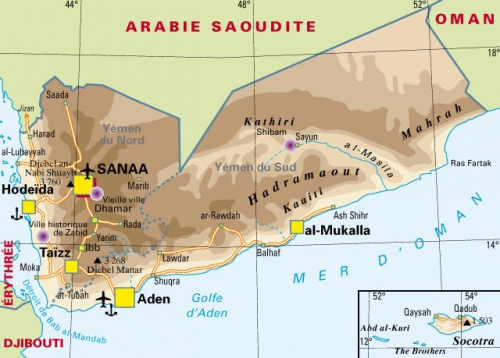

 del.icio.us
del.icio.us
 Digg
Digg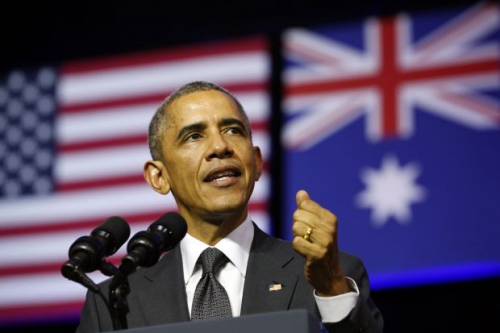
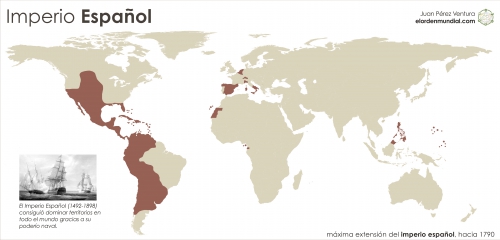
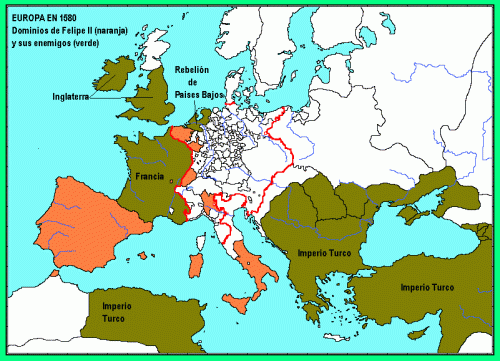
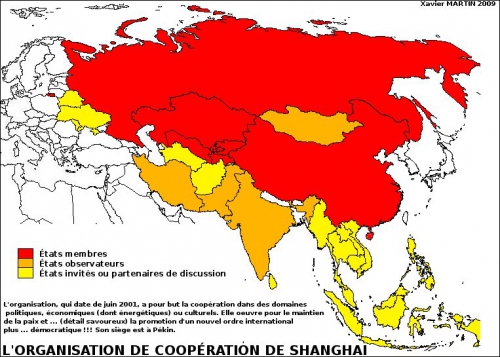
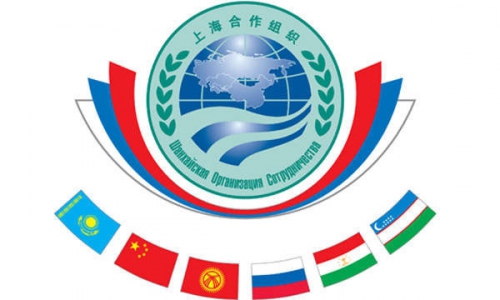
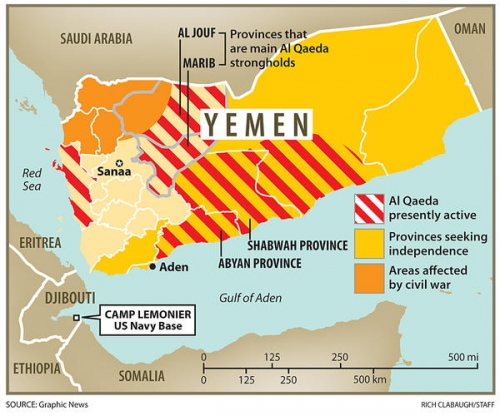
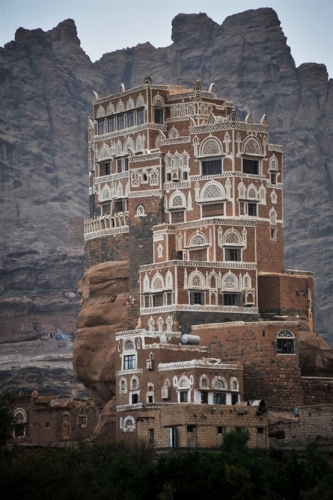 Lo mismo sucedió en Yemen donde pese al derrocamiento del dictador Ali Abdulá Saleh, quien gobernó el país durante 21 años, no hubo cambio significativo en la escena política. El nuevo gobierno revolucionario, con el apoyo de Arabia Saudí y de gobiernos occidentales, continuó el rumbo de la administración de Saleh, y siguió con la represión del pueblo yemení, especialmente de los chiíes. Esta situación provocó que la sociedad yemení se levantara de nuevo para establecer la democracia y enfrentarse a la influencia de las fuerzas foráneas.
Lo mismo sucedió en Yemen donde pese al derrocamiento del dictador Ali Abdulá Saleh, quien gobernó el país durante 21 años, no hubo cambio significativo en la escena política. El nuevo gobierno revolucionario, con el apoyo de Arabia Saudí y de gobiernos occidentales, continuó el rumbo de la administración de Saleh, y siguió con la represión del pueblo yemení, especialmente de los chiíes. Esta situación provocó que la sociedad yemení se levantara de nuevo para establecer la democracia y enfrentarse a la influencia de las fuerzas foráneas. 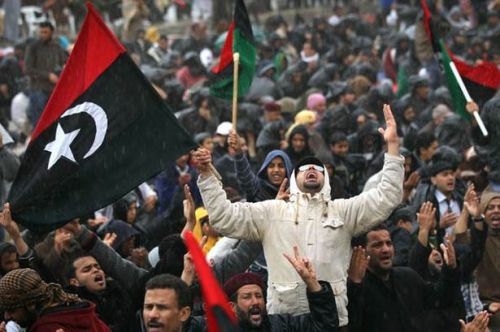

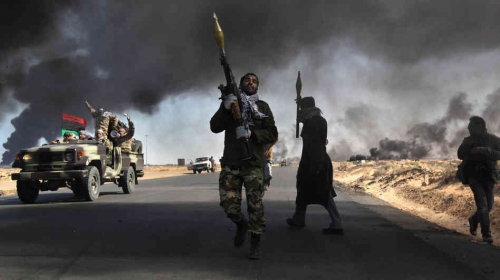
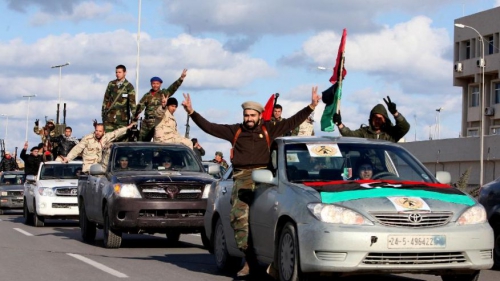







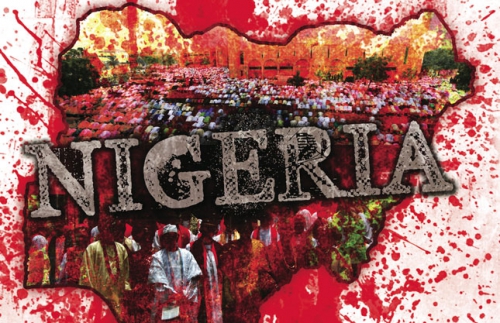
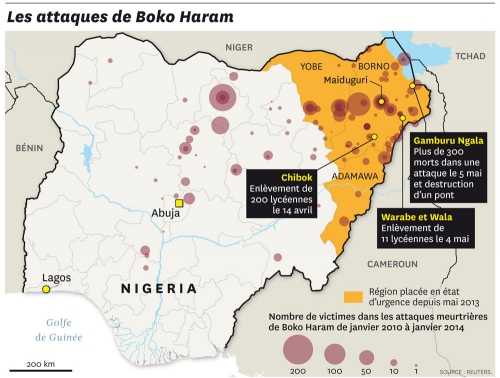
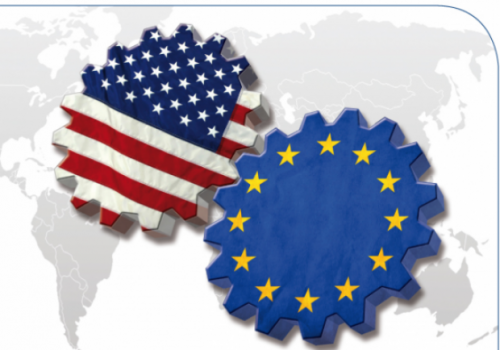
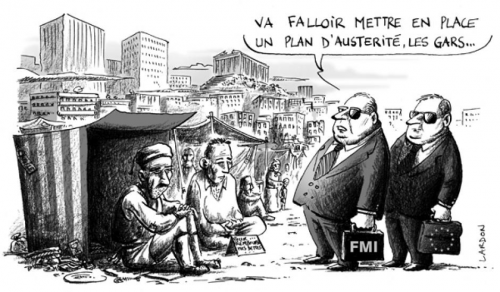
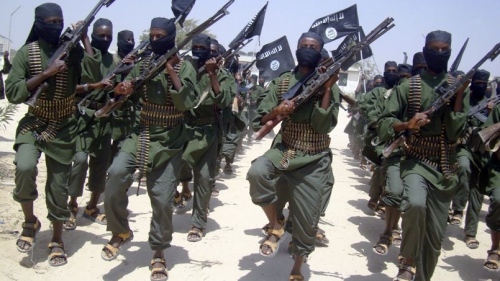
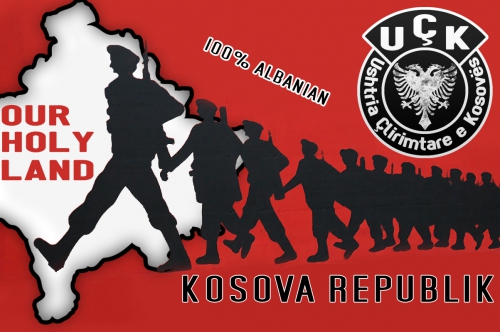
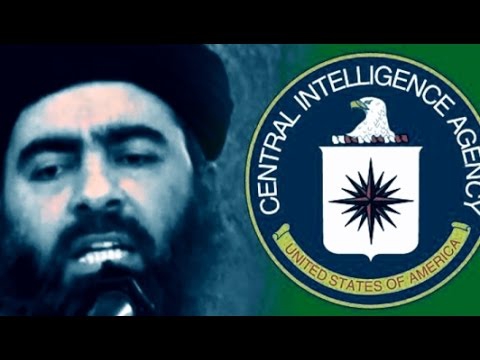


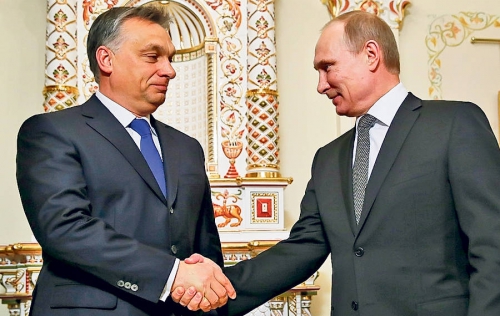
 .
.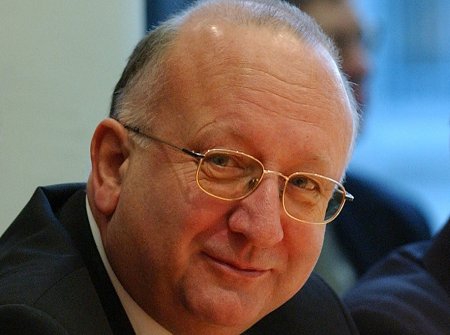

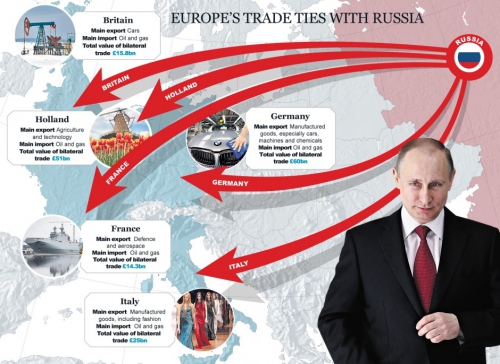
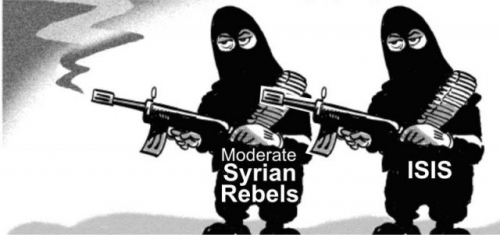
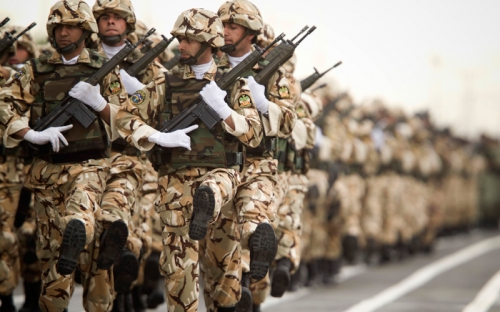
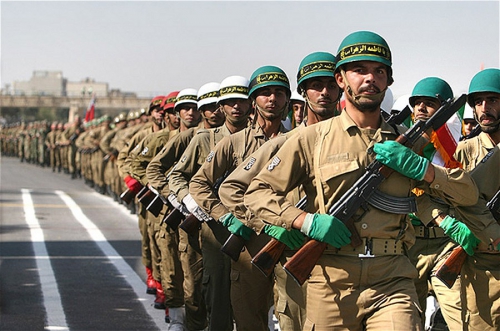
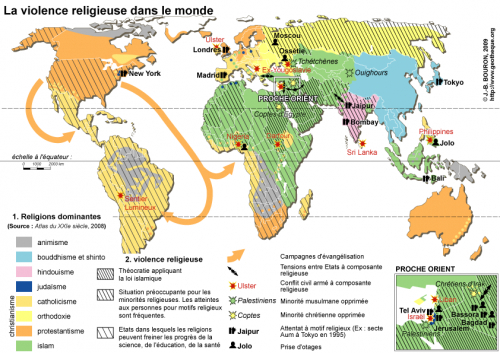

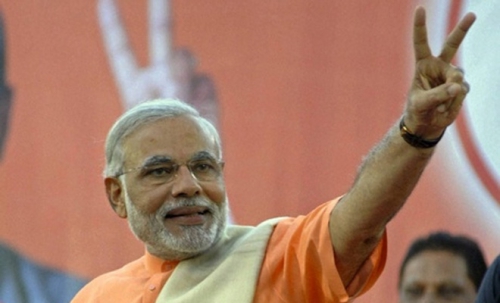

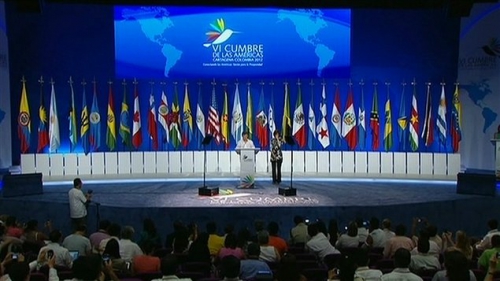
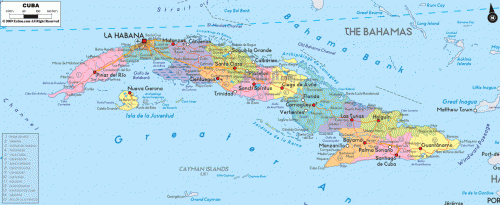

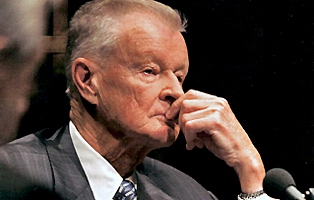
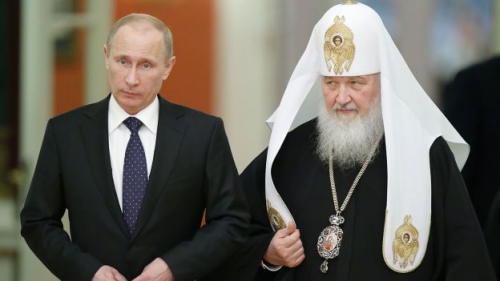
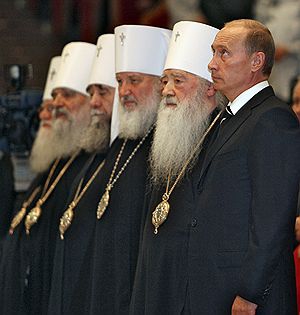 Pour appuyer notre démonstration et lui donner une base d’actualité suffisamment riche, nous citons un texte de l’écrivain(e) danoise Iben Thranholm, publié par l’excellent site Russia Insider, le
Pour appuyer notre démonstration et lui donner une base d’actualité suffisamment riche, nous citons un texte de l’écrivain(e) danoise Iben Thranholm, publié par l’excellent site Russia Insider, le 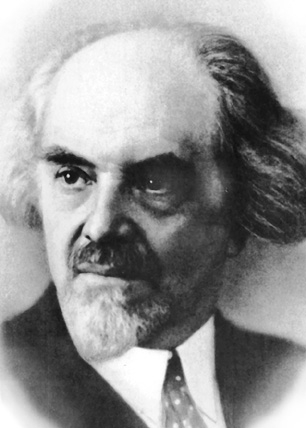 »For their part Solovyov and Berdyaev argued that the historic mission of Russia is to lead the way to human unification. Russia would transcend secularism and atheism and create a unified spiritual kingdom. “The Russian messianic conception,” said Berdyaev, “always exalted Russia as a country that would help to solve the problems of humanity.”
»For their part Solovyov and Berdyaev argued that the historic mission of Russia is to lead the way to human unification. Russia would transcend secularism and atheism and create a unified spiritual kingdom. “The Russian messianic conception,” said Berdyaev, “always exalted Russia as a country that would help to solve the problems of humanity.”

